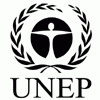The United Nations Environment Programme (UNEP) is the leading global environmental authority that sets the global environmental agenda, promotes the coherent implementation of the environmental dimension of sustainable development within the United Nations system and serves as an authoritative advocate for the global environment.
UNEP work encompasses:
- Assessing global, regional and national environmental conditions and trends
- Developing international and national environmental instruments
- Strengthening institutions for the wise management of the environment
Mission
"To provide leadership and encourage partnership in caring for the environment by inspiring, informing, and enabling nations and peoples to improve their quality of life without compromising that of future generations."
Members:
Resources
Displaying 36 - 40 of 106Conserving dryland biodiversity
This publication is intended to raise awareness amongst all stakeholders and galvanise wider action to boost drylands conservation and development. The book is designed to inform and remind us of the beauty of dryland biodiversity and its intrinsic and instrumental value. It demonstrates the mutual dependency of dryland biological and cultural diversity. The book includes new analyses of drylands biodiversity and an overview of approaches that promote sustainable development as well as conservation goals.
UNCCD Impact Indicators Pilot Tracking Exercise: Results and Conclusions
This report presents results and conclusions from a Pilot exercise undertaken to assess the experience of
affected country Parties to the United Nations Convention to Combat Desertification (UNCCD) with
reporting on impact indicators under the Convention’s Performance Review and Assessment of the
Implementation System (PRAIS). The experiences and recommendations presented in this report should
be used to guide the 2012–2013 reporting and review process.
21 Issues for the 21st Century: Result of the UNEP Foresight process on emerging environmental issues
The purpose of the UNEP Foresight Process is to produce, every two years, a careful and authoritative ranking of the most important emerging issues related to the global environment.
Sahel Atlas of Changing Landscapes: Tracing trends and variations in vegetation cover and soil condition
The atlas provides a pictorial overview of the application of land degradation surveillance a science-based approach to land health monitoring and assessment. Systematic sampling and observation of ground conditions are combined with new technology for rapid soil characterization and with fine to moderate resolution satellite imagery to provide powerful inference about soil, vegetation and socioeconomic conditions at local to regional scales.



